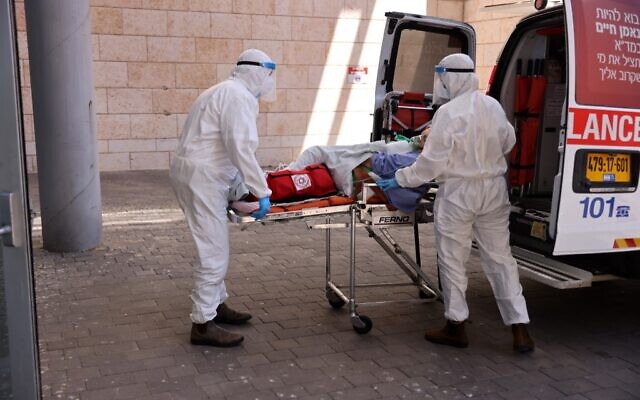'Keep your guard up': CDC studies show waning COVID-19 vaccine efficacy as delta variant sweeps US
Immunity to COVID-19 from vaccines might be declining over time as the highly contagious delta variant surges across the country, according to new research from the Centers for Disease Control and Prevention.
A study released Tuesday showed vaccine effectiveness decreased among health care workers who were fully vaccinated since the time the delta variant became widespread, which could be due to the waning effectiveness of the vaccine over time, the higher transmissibility of the delta variant, or other factors, experts said.
The CDC said the trend should also be “interpreted with caution” because a decline in vaccine effectiveness could be due to “poor precision in estimates due to limited number of weeks of observation and few infections among participants.”
A second study found about a quarter of COVID-19 cases between May and July in Los Angeles were breakthrough cases, but that hospitalizations were significantly lower for those who had been vaccinated. Unvaccinated people were more than 29 times more likely to be hospitalized than vaccinated people, and about five times more likely to be infected.
The studies show the importance of being fully vaccinated because the benefit of being vaccinated when it comes to hospitalization did not decline even with the recent wave, Dr. Eric Topol, a professor of molecular medicine and vice president for research at the Scripps Research Institute, told USA TODAY.
"If you take these two studies together, and everything else that’s been reported… you see consistent attrition of protection with people who are fully vaccinated," he said. "But the benefit of vaccination is still there despite the breakthrough infections because hospitalizations are really markedly protected."
'Need to be on a higher alert': Babies and toddlers more likely than teens to transmit coronavirus, study says
Let the mandates begin: FDA approves of first COVID-19 vaccine
The research comes as the Food and Drug Administration has given its full approval of the Pfizer-BioNTech COVID-19 vaccine, and soon after the agency and the CDC recommended a third vaccine dose to those who have compromised immune systems. A booster shot is expected to be available to fully vaccinated Americans who got their second dose at least eight months prior beginning on Sept. 20, according to the White House.
That’s too long to wait, Topol said. Based on the research, Topol said immunity may begin to go down at around the five- or six-month mark, leaving vaccinated people more vulnerable to infection.
"If you wait until eight months, you’re two or three months vulnerable while delta is circulating. Whatever you’re doing in life, unless you live in a cave, you're getting incremental exposures," Topol said.
The study among health care personnel and other front-line workers was conducted in eight locations across six states beginning in December 2020 and ending Aug. 14. The research shows vaccine effectiveness was 91% before the dominance of the delta variant, and it has since dropped to 66%.
Topol said he doesn’t believe the decline in effectiveness can be solely attributed to waning immunity over time but has a lot to do with the delta variant’s contagious nature. Other factors, such as laxed mitigation measures – relaxation of masking and distancing – could contribute, but are harder to quantify.
No, a vaccine doesn't make you 'Superman': Breakthrough COVID-19 cases are increasing amid delta variant.
“Although these interim findings suggest a moderate reduction in the effectiveness of COVID-19 vaccines in preventing infection, the sustained two-thirds reduction in infection risk underscores the continued importance and benefits of COVID-19 vaccination,” the CDC said.
Topol said the research underscores the need for vaccines for all, but also the need to protect vaccinated people. The delta wave will pass eventually, but even those who are fully vaccinated need to “keep your guard up,” he said.
“We’re not getting the word out enough that people who have been vaccinated are not protected as much as they think. They need to mask up, they need to do everything they can. Make-believe that there wasn't a vaccine," he said.


